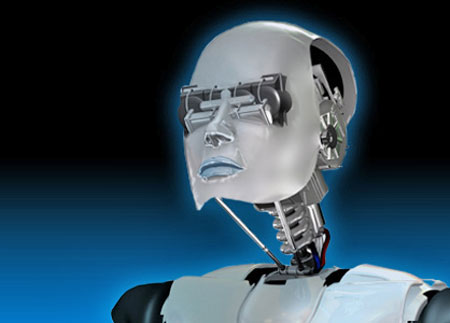|
May 17, 2013
Discussion of the "Singularity" - the moment when computer intelligence surpasses that of humans to such an extent that humans become practically redundant - has been gaining steam across the media spectrum.
Ray Kurzweil
pointed to 2045 as the date of this tipping point, after
which anyone unprepared for merging with machines would likely face
a very unproductive personal future.
However, a growing trend sees humans
done away with altogether, even in those countries where U.S. jobs
have landed, as a fully robotic workforce takes over - curiously by
the same singularity date of 2045 - according to professor Moshe
Vardi, a Rice University computer science professor.
Human beings are slowly but surely becoming redundant in areas as diverse as manufacturing, product fulfillment, and even warfare. However, it is the rise of artificial intelligence which suggests that the former argument stating that humans could maintain positions requiring high skill and decision making may have been wishful thinking.
Many computer science experts are beginning to conclude that complete human obsolescence in the workforce is a more likely outcome.
According to Moshe Vardi, if current trends of computer development and human replacement continue, the traditional labor market will be a thing of the past as a "consequence of machine intelligence."
Until this point, as Vardi notes, humans have been competing with their own creations mainly at a level of "brawn" not brain.
Yet, that is where the most significant changes are taking place in computational ability, giving rise to full-fledged artificial intelligence which threatens to overtake even the areas of "skilled labor," as well as areas of traditional human-to-human services.
We can see signs of this in the following areas, just to name a few: It is also often cited by robot and A.I. proponents that humans are destined for a life of leisure as our creations take over in order to assist us with the grunt work so that we can live tranquil lives of creative pursuits and peaceful philosophical endeavors.
However, this was a common argument also
made when the personal computer came on the scene. Most of us would
agree that the personal computer definitely offered us increased
efficiency and productivity ... but only so that we could work
more, not less.
How can we ensure that we maintain
relevance during a time of such rapid change?
Technology always has been a double-edged sword.
The possibilities presented by artificial intelligence and robotics hold massive positive potential that actually could challenge elite power structures. In the meantime, our economy is transforming away from human inefficiency and variability to a robot economy that is already showing itself as a threat to the viability of an increasing number of people.
Without a massive paradigm shift in the
ability for the average person to tap into the growing potential for
a massive reduction in cost of goods and services, while still
maintaining control over their own creations, the endgame is likely
to be more grim than utopian.
|

